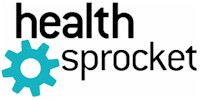Jan
11
Healthcare Business Predictions for 2016
Mon, 01/11/2016 - 12:14
A number of lists recently posted in Healthsprocket address trends for 2016, such as the PwC Top Health Industry Issues Of 2016. Digging a little deeper, the current issue of MCOL ThoughtLeaders features a range of predicted key trends for 2016 from a number of healthcare thoughtleaders. While they elaborate on these items in the issue, here's their predictions reduced to summary list form:
Lindsay Resnick. Chief Marketing Officer, Wunderman Health:
1. Looming economic events create market turmoil.
2. Activist consumerism continues to gain momentum.
3. Shifting demographics change customer acquisition landscape.
4. Digtalization of everything challenges companies to deliver value.
5. Consolidation threatens competition and blurs the lines.
6. Managing government as a business partner trumps all.
7. "Value over volume" mantra goes to the next level.
8. Movement from sickness‒ illness to wellness‒ prevention.
9. Silo-busting becomes the new Six Sigma.
10. Personalization drives the next generation of healthcare.
Henry Loubet, Chief Strategy Officer, Keenan:
1. Innovation and transformation are driving dramatic developments in the health care industry at a rapid pace these days.
2. The 2016 Election could potentially hold transformative Affordable Care Act impacts, with a new President and approximately 470 seats in the House and Senate to be decided.
3. Disruptive start ups will continue to alter how health care is delivered as more members of the Millennial generation become health care consumers and entrepreneurial purchasers.
4. Not frequently discussed, but a growing area for health care is the application of non-occupational medical, pharmacy, and wellness/condition management principles to workers' compensation.
William J DeMarco, MA, CMC, President/CEO, Pendulum HealthCare Development Corporation:
The overarching issue will be that of shifting from fee for service to value based payments. The ACA was described as "the biggest homework assignment hospitals have ever had" and for those who did the homework, they are thinking in terms of:
1. Network environment for a broad continuum of services (not just acute care) this includes prescription drugs, home health, rehab and mental health.
2. Data Network thinking is a start because you are now able to manage the continuum in order to get to the data.
3. Risk Score By managing the continuum and the consistency of outcome you can change the patient risk score which then measures some opportunity for savings through improvement.
Mark E. Lutes, Chair, Board of Directors / Member of the Firm, Epstein Becker Green:
1. "On Grid" players will build networks of, or vertically integrate with, post-acute resources to manage value based pricing risks such as episode payments.
2. On-grid market participants will take stronger steps to integrate behavioral health capabilities both to step up to the challenges of actualizing mental health parity and to cost effectively manage populations where mental health comorbidities drive total health care costs.
3. Providers will accelerate their interest in sponsoring plans to serve Medicare Advantage and managed Medicaid lives resulting in further Congressional support for the programs but also additional local innovation in care delivery and more holistic patient care to mitigate the cost impacts of social and other determinants of health expenditures.
4. "Off Grid" players will capture increasing large portions of what would otherwise be traditional health care spending. The retail sector will expand the range of services from pharmacy, DME and urgent care to lab work and beyond.
5. The Amazon Prime method and experience will find its way into health care supply and soon delivery.
6. The web based or in-person purveyors of diet and fitness regimes will build on consumer loyalty to begin to be the mediator and access point for traditional health care choice and spending.
Jeremy Nobel, MD, MPH, Northeast Business Group on Health, Executive Director, NEBGH's Solutions & Innovations Center Faculty, Center for Primary Care, Harvard Medical School:
The biggest healthcare business trend in 2016 will be the acceleration of value-based provider contracts being executed by the commercial sector on behalf of self-insured employers and the employees, retirees and dependents who are beneficiaries
Lastly, here' my own list of “Fateful Eight” Trends to Watch in 2016 posted in more detail in the MCOLBlog:
1. Prescription drug slice of the cost pie
2. Aftermath of health plan consolidations
3. Onward march of health system m&a
4. Private sector embrace of two ACA concepts
5. Pay for Value Initiatives
6. Healthcare Political Theatre
7. Quiet but big adoption progress for all things mHealth
8. The ever growing burden of consumer cost sharing
- Clive Riddle's blog
- Login to post comments

